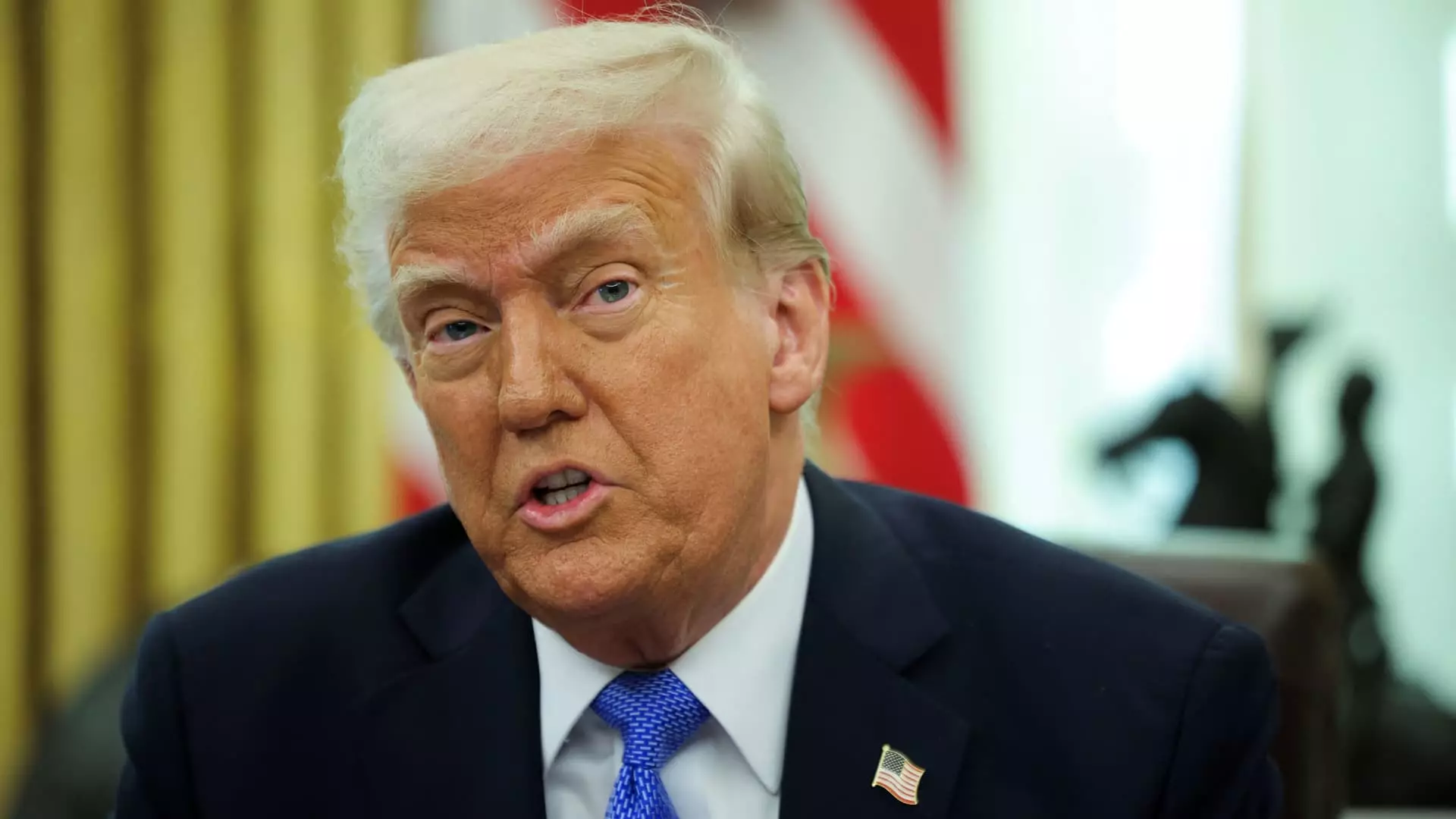President Donald Trump’s recent announcement to transfer federal student loan management from the Department of Education to the Small Business Administration (SBA) has sent ripples through both the political arena and the financial sphere. With student debt surpassing a staggering $1.6 trillion, affecting over 40 million Americans, this decision is anything but trivial. In a matter-of-fact tone, Trump claimed the SBA is “all set” to tackle a “pretty complicated deal” that could have far-reaching implications for millions of borrowers. However, critics argue whether this radical shift is truly beneficial or simply a ploy to dismantle federal oversight in education.
The Implications of Oversight and Experience
While the SBA may have a reputation for supporting small businesses, its qualifications to manage student loans are questionable at best. Education experts, including Mark Kantrowitz, emphasize that neither the SBA nor the Department of Commerce possesses relevant experience in handling complex loan portfolios. This begs the question: what expertise does the SBA bring to an issue that has cost Americans dearly both financially and emotionally?
The risk of transferring federal loan oversight to an agency poorly suited for the task raises alarms about possible consumer rights violations and privacy concerns. Advocates warn that such a drastic overhaul could lead to significant errors in loan management, potentially compromising the financial stability of borrowers. Do we really want to trust the futures of millions to an agency ill-equipped to handle such a monumental responsibility?
Potential Risks to Borrowers’ Rights
Of particular concern is how this transition might affect existing borrower protections and programs like Public Service Loan Forgiveness (PSLF). Many individuals have invested time and energy into qualifying for these programs, only to have the very framework they depend on suddenly altered. Trump asserted that existing loan terms would remain intact, but can we truly trust that the rights guaranteed when loans were initiated will be upheld under new management? Regulatory assurances are often paper thin, and history shows that when such fundamental systems are in flux, borrowers tend to suffer.
In this volatile political climate, changes to federal loan policies and their management have traditionally sparked confusion and frustration among borrowers, making it imperative to tread carefully.
A Misguided Solution or a Step in the Right Direction?
While the intention may be to streamline processes, this decision appears more like a misguided attempt at dismantling an agency rather than genuinely addressing the needs of borrowers. The Treasury Department, with its experience in collecting debts through established programs, would have been a more logical choice for managing student loans. However, the administration’s choice to go with the SBA seems to echo the broader trend of sidelining education in favor of policies favoring small businesses, leaving students and graduates to wonder about their financial futures.
In an age where education should be prioritized as a means of economic empowerment, a move toward diminished governmental oversight might lead us down a slippery slope.

